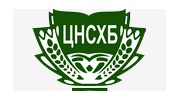Onosov A. A. Peasant question in the common cause philosophy // The Russian Peasant Studies. 2024. V.9. №3. P. 7-24.
DOI: 10.22394/2500-1809-2024-9-3-7-24
Annotation
The article presents the results of the explication and analysis of the “peasant question” as one of the semantic centers of N. F. Fedorov’s common cause philosophy. In its various formulations and analytical sections, the peasant question is an ideologically complex issue of cosmism, which combines multiple antinomies of being — urban and rural, present and due, secular (universal-philistine) and sacred (cosmic-peasant). The cause-and-effect analysis of the peasant question shows that its polysemantic nature is determined by the extreme ontological tension of the main nerve of the cosmism philosophy — issues of “life and death” in its moral-family form as issues of mortal sons who lost brotherhood and universal fatherland, and as issues of fathers awaiting bodily resurrection, a rebirth. The article identifies the supra-moralistic significance of the “bread labor” — various subject-life, planetary-cosmic expressions of agriculture in civilizational practices and projective goal setting of cosmosophy. The author emphasizes that in his deep retrospective and prospective historical analysis Fedorov clearly realized the peasant essence of the question of life and was a pure pragmatist of life as immortal and perfect for all sons of men, psychocratically integrated into the “adult society”.
Keywords
N. F. Fedorov, common cause philosophy, cosmism, supra-moralism, peasantry, peasant question, agriculture, village, regulation of nature, resurrection.
About the author
Alexander A. Onosov, PhD (Philosophy), Leading Researcher, Faculty of Philosophy, Lomonosov Moscow State University; Senior Researcher, Center for Cosmism Studies, Moscow School of Social and Economic Sciences; Associate Professor, Faculty of Humanities and Social Sciences, RUDN University. Lomonosovsky Prosp., 27–4, Moscow, 119991, Russia.
E-mail: This email address is being protected from spambots. You need JavaScript enabled to view it.























